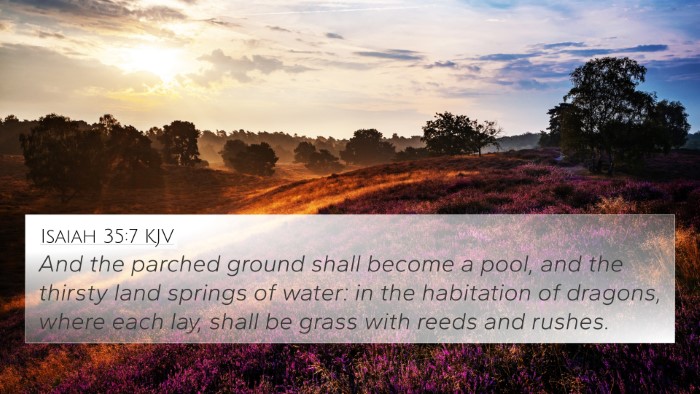Understanding Judges 6:38
Judges 6:38 states:
"And it was so: for he rose up early on the morrow, and thrust the fleece together, and wrung the dew out of the fleece, a bowl full of water."
This verse is part of the narrative of Gideon, a judge of Israel, who sought reassurance from God before leading the Israelites against the Midianites. Several public domain commentaries provide valuable insights into this verse, exploring its context, significance, and how it interconnects with other Biblical texts.
Contextual Overview
Gideon was called by God to save Israel from oppression. However, he struggled with doubts about his capability and the divine promise of victory. The act of using a fleece as a sign was both a plea for confirmation and a demonstration of his wavering faith.
Insights from Commentaries
- Matthew Henry: Henry emphasizes Gideon's uncertainty and the mercy of God in accommodating Gideon’s need for signs. He illustrates the common human tendency to require tangible assurance of spiritual truths.
- Albert Barnes: Barnes notes that while Gideon’s request for a sign showed a lack of complete faith, it also reflects a sincere desire to follow God’s will. Barnes points out that this method of seeking divine assurance through physical signs can be seen throughout scripture.
- Adam Clarke: Clarke discusses the nature of Gideon’s fleece test, explaining that it symbolizes a deeper spiritual exploration of faith. He suggests that the act of wringing dew from the fleece indicates not just an act of verification but an expression of Gideon's deeper yearning for trust in God's promises.
Cross-References and Thematic Connections
Judges 6:38 is interconnected with various themes across the Bible, serving as a point of reflection on faith, signs, and divine guidance. Here are some key Bible cross-references:
- Exodus 3:12: God provides signs to Moses to affirm His divine presence and support.
- 1 Samuel 10:7: Samuel instructs Saul to wait for signs to validate his anointing as king.
- Matthew 12:38-39: Pharisees ask Jesus for a sign; He rebukes them for requiring miraculous proof without faith.
- John 20:29: Jesus tells Thomas, "Blessed are those who have not seen and yet have believed," highlighting the challenge of faith without signs.
- Hebrews 11:1: Faith is defined as confidence in things hoped for without needing physical evidence, contrasting Gideon’s reliance on signs.
- Romans 10:17: Faith comes by hearing the Word of God, indicating the importance of spiritual belief over visual signs.
- James 1:5: Encourages asking God for wisdom, who gives generously without reproach, reinforcing the idea of seeking divine guidance.
Thematic Bible Verse Connections
This verse resonates with broader Biblical themes, such as:
- Faith in Divine Promises: Exploring how believers respond to God’s commands amidst uncertainty.
- Signs and Assurance: The relationship between divine signs and human faith as exemplified in figures like Moses and David.
- God’s Patience with Doubt: How God accommodates human frailty, encouraging a dialogue between divine assurance and human doubt.
- Confirmation of God’s Will: The critical nature of seeking and confirming God’s directions in our lives.
Application for Modern Believers
For believers today, Judges 6:38 serves as a reminder of the importance of faith and the sometimes challenging journey of trusting in God’s promises. It challenges individuals to reflect on their own moments of doubt and seek reassurance through prayer and the study of scripture.
Tools for Bible Cross-Referencing
Understanding the connections between Bible verses is essential for deeper study. Tools and methods include:
- Bible Concordance: Useful for locating verses based on keywords.
- Bible Cross-Reference Guide: Helps identify related passages and themes across the scriptures.
- Bible Reference Resources: Provides cross-reference materials to facilitate deeper studies.
- Cross-Referencing Bible Study Methods: Methods to explore thematic links across various Biblical texts.
Conclusion
In conclusion, Judges 6:38 encapsulates a pivotal moment in Gideon's life, illustrating the intersection of human doubt and divine reassurance. By exploring this verse and its connections through various commentaries and cross-references, one can gain a richer understanding of faith's complexities in the pursuit of God’s will.



